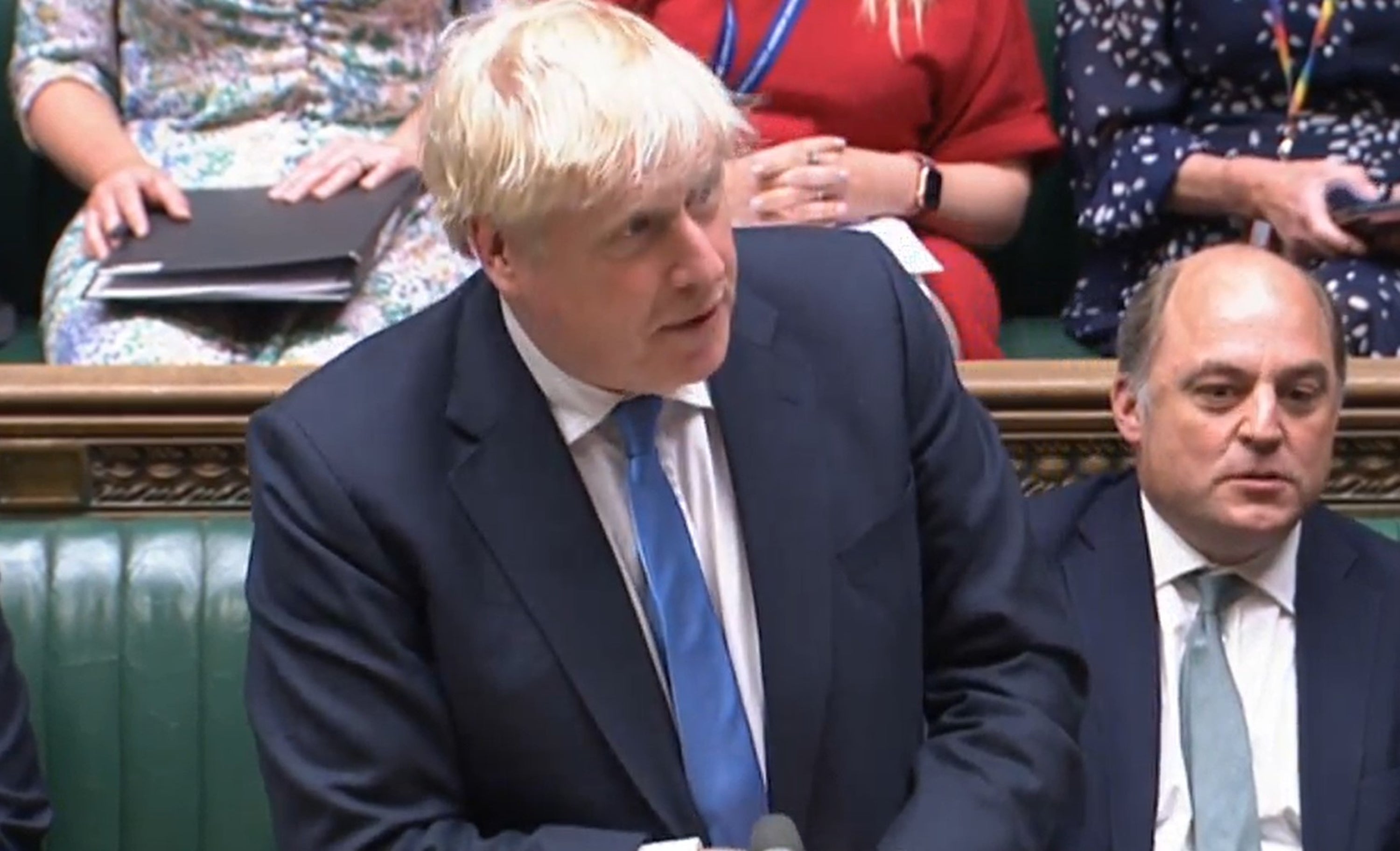Rivers and rail option under consideration to free Ukraine’s grain, says Johnson
The Prime Minister told MPs that “alternative routes” will be looked at if the sea route continues to be blocked by Russia.

Boris Johnson has suggested the Danube and other rivers could be used to free Ukraine’s trapped grain.
The Prime Minister told MPs that “alternative routes” will be looked at if the sea route continues to be blocked by Russia.
He stressed there is no plan to breach the Montreux Convention, which restricts the movement of warships through the Turkish Straits, but a rivers and rail option would allow smaller quantities of grain to be moved out.
We may have to prepare for a solution that does not depend upon Russian consent because that may not be forthcoming
Russia’s Black Sea blockade has raised fears of starvation around the world.
Conservative MP Tobias Ellwood, who chairs the Defence Committee, repeated calls for the UK to secure a UN General Assembly resolution to create a “humanitarian safe haven” around the port of Odesa to ensure “vital grain exports can not only reach Europe but also Africa and prevent famine there”.
The Prime Minister replied in the Commons: “The work is being led by the UN secretary-general Antonio Guterres, the UK is doing a huge amount to support.
“But as I’ve told the House before, we may have to prepare for a solution that does not depend upon Russian consent because that may not be forthcoming.”
Labour MP Stella Creasy (Walthamstow) asked Mr Johnson to confirm whether he is looking at breaching the Montreux Convention.
Mr Johnson said: “She is right to raise that. No, we are not looking at that. There are alternative solutions that don’t involve the presence of UK or other warships in the Black Sea.
“Though they might involve a tougher approach, but what we are also looking at is the possibility of using the rivers, using the Danube in particular, to try to get … using the railways to try to get the grain out in smaller quantities than we would be able to do with a giant maritime convoy through the Black Sea.
“So we are looking at all the possible options, including smaller packets of grain coming out that way.”
Labour former minister Hilary Benn also told the Commons: “The Prime Minister will know that time is running out to get grain to the hundreds of millions of people who will be facing destitution and hunger, as the secretary-general has warned.
“Could he tell us who is going to provide the security guarantees to Ukraine? Because the fear is that if you open up a sea corridor, that the Russians will seek to use it to attack Odesa.
“And can he confirm that it is to Turkey that the world is looking to provide those guarantees so the grain can get out before the moment is lost?”
Mr Johnson replied: “He is completely right. The Turks are absolutely indispensable to solving this and they are doing their very best.
“I thank President Erdogan for the efforts that he is making. It does depend on the Russians agreeing to allow that grain to get out.
“The UK is offering demining facilities, we are offering insurance facilities for the vessels that will be needed to get the grain out, but we will – he is right about the urgency – we will increasingly have to look at alternative means of moving that grain from Ukraine if we can’t use the sea route, if we can’t use the Bosphorus.”
Bookmark popover
Removed from bookmarks